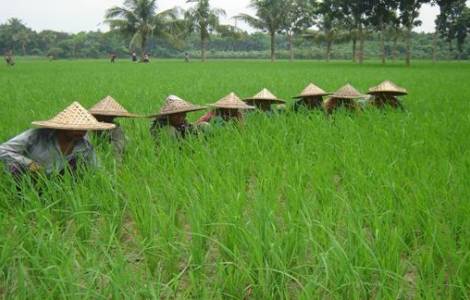
fpd-bd
Dhaka (Agenzia Fides) - Bangladesh Caritas is working to address the issues of climate change: says to Agenzia Fides Anjalina Diana Podder, Program officer for Social welfare and community development sector of Caritas Bangladesh. Bangladesh is a country that is situated on a river delta: flat land and not much higher than the sea level. Climate change is a threat especially for the coastal districts (19 in the country) because, if the sea level rises by one meter, 30% of the total area of Bangladesh would be flooded permanently, generating over 30 million potential "climate refugees".
According to reports published by international institutions, the rise in temperature is constant in Bangladesh. Rainfall is irregular due to the effects of climate change and the monsoons arrive late. Winter time is shortened and the average temperature in Bangladesh in December 2016 was 15° Celsius, five degrees above the average temperature over the same period in 2015.
Anjalina Diana Podder reports to Fides that climate change is bringing drastic alterations that result in irregular rainfall, temperature rise, shorter winters, average temperature increases, the loss of land due to flooding, the loss of agricultural production, infertility of the soil, increase in soil salinity.
The most affected sector is agriculture, which constitutes the backbone of the economy in Bangladesh. The sector depends on natural precipitation system for the production of rice and other crops. And, due to the change of these two elements, it can be said that climate change today strongly influences the agricultural production of the country.
In particular, notes the representative of Caritas, the rising sea level is a serious threat to agricultural production in the southern regions of the country, while the increase of soil salinity can cause, according to experts, a decrease of 10% in the production of rice and 30% in that of wheat by 2050. Since economy is based mainly on agriculture, 70% of the nation's population is involved and is sustained thanks to agricultural production and will thus suffer heavy negative effects on their income, with consequences of food insecurity and malnutrition.
The annual rainfall decreased and premature ones that fall during the winter (November to February) cause damage to crops and loss of production. In summer, instead, Bangladesh is not receiving the usual amount of rainfall and the summer temperature has risen by more than 2 degrees Celsius, especially in northern Bangladesh.
At the same time cyclones are stronger and more frequent causing severe storms: people living in the affected areas lose their livelihoods. In recent years landless and marginalized farmers, deprived of alternative means of income has increased. This vast population migrates to urban areas and work in the clothing industry where they receive very little salary. Often women and children remain in the villages, with the elderly: they are the most vulnerable.
Anjalina Diana Podder told Fides: "In such a situation, Caritas Bangladesh has initiated awareness programs at Community levels, social groups, forums, and vocational training in agriculture to help people face the consequences of climate change. Through knowledge and technology, it aims to put in place a number of possible practices to address these effects and not lose earning power, even by reverting to organic farming, the production of vegetables, cattle breeding and fishing. Among the important aspects, there are forms of water supply of fresh water with rainwater reserves managed at family, community and village levels".
Caritas has set in motion an education campaign to make the population of rural areas aware, by publishing, in the eight dioceses of Bangladesh, information material on climate change and its impact. The goal is to pass this information in schools, colleges, madrasas in order to inform young people in particular, in a nation that has a large youth population. (SD-PA) (Agenzia Fides 27/01/2017)